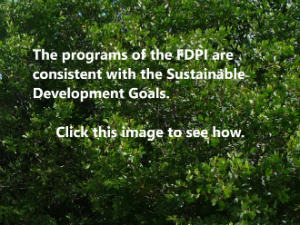Climate change is a major threat to Caribbean countries, with impacts resulting from higher temperatures, increasing intensity of tropical storms, longer periods of drought, increasing frequency of flood events, and sea level rise. Increased temperatures and changes in precipitation are adversely affecting the integrity of critical ecosystems, food security, human health, and the ability of communities to absorb shocks from natural and man-made sources.
Additionally, climate change is a driver of disaster risk, requiring that both issues be addressed within the same policy and regulatory framework.
The disruptive impacts of climate change and extreme weather events also exacerbate economic and social inequities, particularly in relation to marginalized groups and at-risk persons. Therefore, strategies to build resilient communities require reduction of inequities and disparities in the overall development process.
Areas of focus for the 2021-2031 program period are:
- Climate change adaptation.
- Disaster risk reduction.
- Food, health, and water security
- Environmental justice.
- Island systems management and restoration of critical ecosystems.
Current Initiatives:
– U.S. Virgin Islands Climate Change Program
Related FDPI articles:
– Community Empowerment for Climate Adaptation
– Climate Change and the U.S. Virgin Islands
